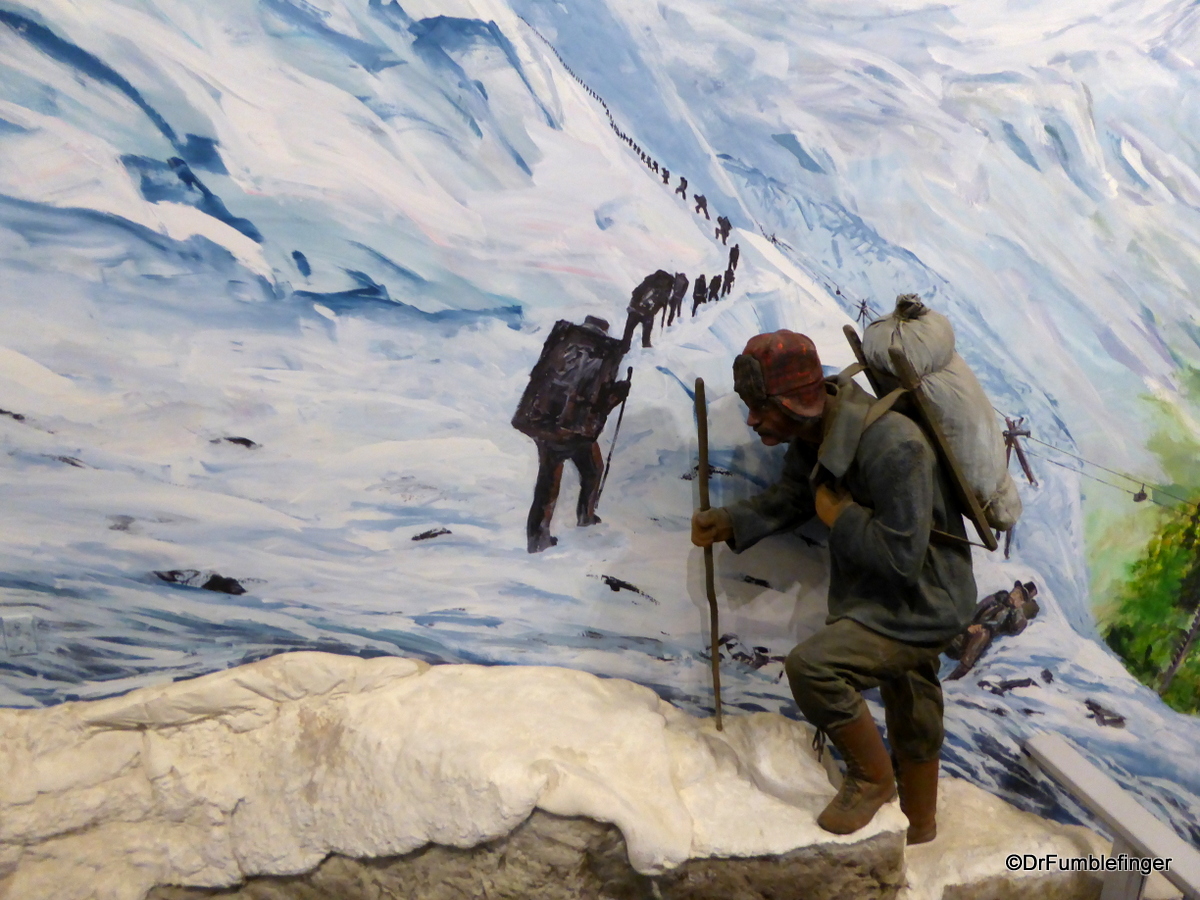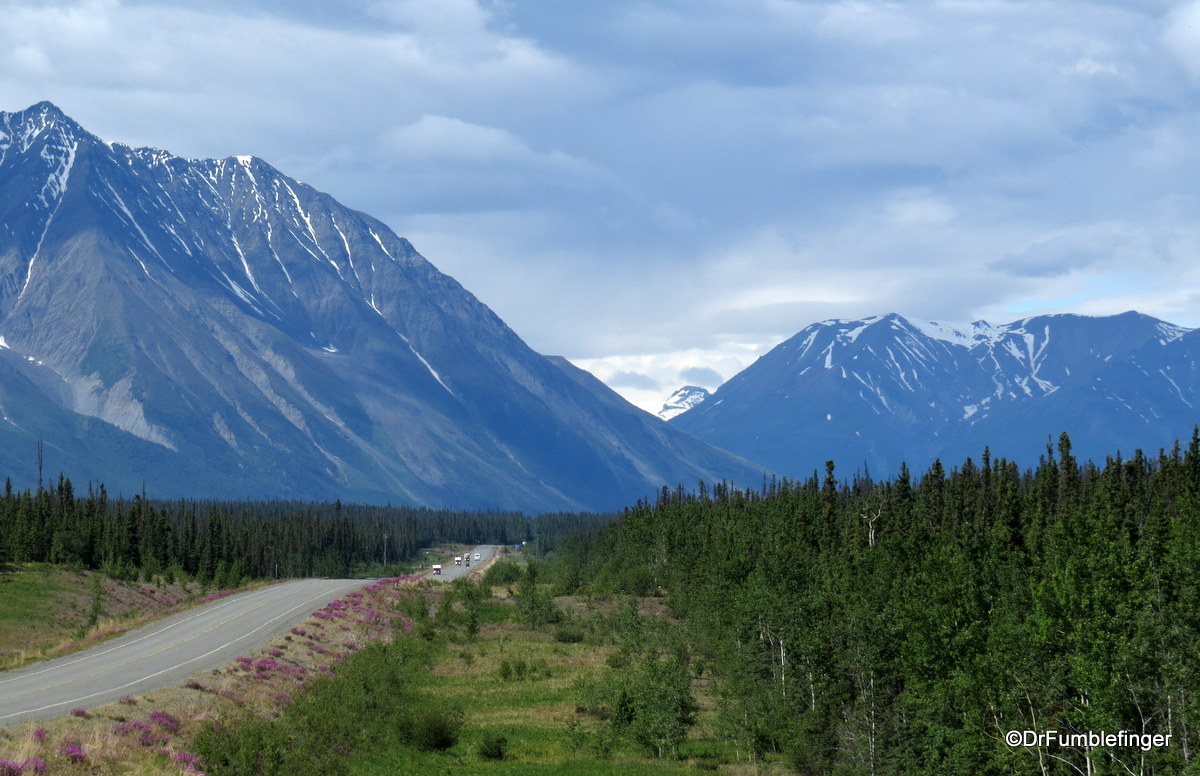Get update alerts
Locations
- .All Trips
- Art
- Car Culture
- Central America/Caribbean
- Food
- Food Tour
- Pic of the Week
- Sl;ovenia
.All Trips / North America / Western Canada / Yukon

MacBride Museum, Whitehorse

I’ve visited the MacBride museum twice, first in the late 1990s and again 20 years later. The museum had changed a lot. The building that houses it had expanded significantly (growing some 15,000 square feet) and its collection and display space have also grown.
The MacBride Museum has been collecting and documenting the Yukon’s history for almost 70 years. The Museum was founded by the Yukon Historical Society and later named for W.D. MacBride. Mr. MacBride was born in Montana, was orphaned as a child, and moved to Alaska in 1912. A few years later he relocated to Whitehorse where he lived, married, raised a family, and worked for almost 50 years as an employee of the White Pass and Yukon …
Tagged AlCan highway, history, Klondike Gold Rush, MacBride Museum, Yukon
“Pic of the Week”, May 8, 2020: A Century of Yukon License Plates

I couldn’t help but smile when I saw this display of license plates at the Yukon Transportation Museum. Where else would you find an actual (not a custom plate) license plate #2?
Besides its displays of cars, trucks and planes, the museum features an exhibit of a century of Yukon license plates in one of its halls. Licensing of motor vehicles was not required in this Canadian territory until 1914. It was interesting to see how little the style of the plates changed, and how small the number of motor vehicles must have been in those early years given the single and double digit plate numbers. Even today Yukon vehicle plates only have three letters and 2 numbers …
May 7, 2020
Comments Off on “Pic of the Week”, May 8, 2020: A Century of Yukon License Plates
“Pic of the Week”, April 10, 2020: Airplane Weathervane, Whitehorse

The world’s largest weathervane, an actual Douglas DC-3 aircraft, sits on a pedestal in front of the Yukon Transportation Museum. It’s an interesting sight made more impressive by the fact that the plane slowly and quietly moves, always with her nose pointed into the wind. The plane is so finely balanced that even a 5 knot wind will turn her. I made a point of watching over a period of several days and she always seemed pointed in a slightly different direction.
The idea for this weathervane belongs to the The Yukon Flying Club (which morphed into the the Yukon Transporation Museum). In 1977, members of the Club started a multiyear project to create what was to become …
Apr 9, 2020
Comments Off on “Pic of the Week”, April 10, 2020: Airplane Weathervane, Whitehorse
“Pic of the Week”, March 20, 2020: Alpenglow on the Kootenay Rockies

I was passing through the Kootenay Rockies of Eastern British Columbia at dusk, just as the sun was setting. That occurs early during the winter months, around 4 – 5 pm. It was a clear day and I could see a bit of the alpenglow on the snow clad mountains.
The alpenglow is a band of reddish light observed in the direction opposite of the setting sun, and occurs just as the sun dips below the horizon. It’s best appreciate on the mountain tips, as you see here. The phenomenon lasts just a minute or two, then it’s gone. But it was a lovely scene.
(Click on thumbnails to enlarge, right arrow to advance slideshow)
Mar 19, 2020
Comments Off on “Pic of the Week”, March 20, 2020: Alpenglow on the Kootenay Rockies
.All Trips / North America / Western Canada / Yukon


The Yukon Transporation Museum, Whitehorse

I enjoy transportation and car museums, so it’s no surprise that I thought this was one of the most interesting places to visit in Whitehorse. The museum is mostly housed in a large building with several wings, but also spreads onto the surrounding grounds. The Yukon is large territory, but is sparsely populated. The museum focuses on those things that made the Yukon Territory what it is today, so there is a heavy emphasis of large machinery, trucks and airplanes — the type of equipment needed to get around in and develop a wild and frozen land. But the collection goes beyond that.

Diorama of the Chilkoot Pass, Yukon Transporation Museum
The Museum tells some of the stories of the Yukon’s development, especially of the very important Klondike Gold Rush. This …
North America / Western Canada / Yukon

“Pic of the Week”, January 24, 2020: Sam Steele, The Lion of the Yukon

There are times in history when one man can make an enormous difference to the lives of thousands of people. Sam Steele, known as the “Lion of the Yukon”, was just such a man. His formal title, in time, was to be Major General Sir Samuel Benfield Steele.
Sam had a distinguished career as a soldier and officer in military and in the Northwest Mounted Police (NWMP), which today has morphed into Canada’s Royal Canadian Mounted Police (RCMP). Sam was head of the Yukon detachment of the NWMP during the Klondike Goldrush. What was a sleepy outpost initially turned into a challenging position for Sam and his Mounties.
He established Custom outposts atop the Chilkoot and White Passes, and the Mounties did …
Tagged gold rush, Klondike Gold Fields, Lion of the Yukon, NWMP, RCMP, Sam Steele
.All Trips / North America / Western Canada / Yukon


Kluane National Park, Yukon Territory

One of the more remote regions on the North American continent is Kluane National Park, located in southwestern Yukon, 160 kilometres west of Whitehorse. It’s minimally accessible by car and has few hiking trails, most of which are near the outskirts of the park. The park’s backcountry is largely inaccessible except to rugged individuals who like to blaze their own trail. The best way to see Kluane’s backcountry is by plane (on a clear day). It’s a very beautiful but rough landscape, filled with tall peaks, roaring rivers and glaciers.

Alaska Highway and Kluane National Park
The town of Haines Junction is at the convergence point of the two highways that skirt Kluane National Park and Reserve, namely the Haines Highway heading north from Haines in the …
“Pic of the Week”, November 15, 2019: A Drive along the Alaska Highway to Kluane National Park

One of the greatest construction achievements of the 20th century was the building of the Alaska Highway (a.k.a. the Alaska-Canadian or ALCAN highway).
After the Japanese attacked Pearl Harbor in 1941 and showed growing interest in the Alaskan coast, the US government made construction of a road leading from the lower 48 states into Alaska a top priority. Up to that point in time, the most common route of entry to Alaska was by boat, which was considered threatened by Japanese submarines (a threat which in reality did not materialize).
The Alaska Highway begins in Dawson Creek, British Columbia, and ends in Delta Junction, Alaska, passing through Whitehorse in the Yukon territory. The route, when constructed, was 1700 miles (2700 km …
Nov 14, 2019
Comments Off on “Pic of the Week”, November 15, 2019: A Drive along the Alaska Highway to Kluane National Park